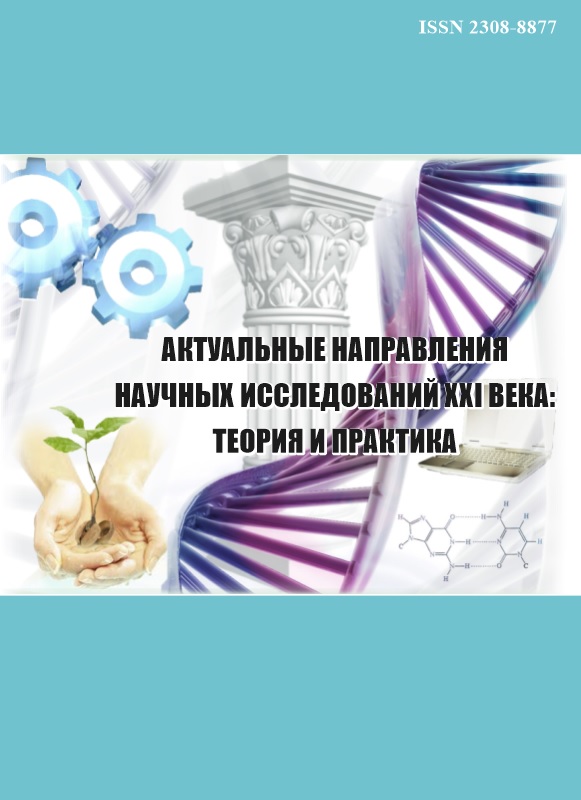Russian Federation
Artificial intelligence is changing companies and how they manage innovation. Rapid technological development and the replacement of human labor with artificial intelligence can force management to rethink the entire innovation process of the company. Using the ideas of the Carnegie School and the behavioral theory of the firm, the implications for innovation management of artificial intelligence technologies and artificial intelligence systems based on machine learning were considered. A diagram is presented showing the extent to which artificial intelligence can replace humans. It is shown what aspects should be taken into account when transforming into a digital organization of innovations. It is noted that artificial intelligence plays a constructive role where the time-tested advantages of innovation management resources are suppressed, impossible due to digitization. The clear potential of artificial intelligence lies in creating a more systematic approach by integrating artificial intelligence into organizations seeking to innovate. The results of the study point to areas in which artificial intelligence systems can already be fruitfully applied in organizational innovation, namely, in cases where the development of new innovations is primarily constrained by the limitations of information processing. Artificial intelligence systems that rely on anomaly detection, for example, can be useful when firms grapple with processing constraints in search of new opportunities.
artificial intelligence, innovation, innovation management, machine learning, information processing
ВВЕДЕНИЕ
Интерес ученых к идее о том, что искусственный интеллект (ИИ) и машинное обучение могут заменить людей и изменить существующие организационные процессы, неуклонно растет [1]. При определенных ограничениях в обработке информации ИИ может обеспечивать более высокое качество, большую эффективность и лучшие результаты, чем люди-эксперты [2].
Принимая во внимание потенциал ИИ для выполнения традиционных «человеческих» задач в организациях, мы можем спросить, можно ли использовать роль ИИ в реализации одного из наиболее важных процессов, влияющих на долгосрочное выживание и конкурентное преимущество компании – инноваций? [3]. На первый взгляд идея о том, что ИИ и машинное обучение могут и должны использоваться фирмами в инновационных целях, может показаться почти надуманной. Инновации традиционно считались сферой деятельности людей, учитывая их «уникальную» способность быть инновационными [4].
Несмотря на то, что ИИ может иметь недостатки по сравнению с людьми, существует несколько нетривиальных причин, по которым компании могут захотеть использовать ИИ в своих инновационных процессах. Среди факторов, экзогенных для инновационного процесса, тот факт, что менеджеры по инновациям все чаще сталкиваются с чрезвычайно нестабильной и меняющейся средой, все более конкурентными глобальными рынками, конкурирующими технологиями и резко меняющимся политическим ландшафтом [5]. В то же время доступность информации увеличилась и продолжает значительно увеличиваться. Эти тенденции убедительно свидетельствуют о том, что основой конкурентоспособности являются информационные возможности организаций и их способность решать проблемы [6].
Следовательно, поиск способов применения ИИ и машинного обучения в инновационных процессах фирм должен представлять значительный интерес для менеджеров по инновациям. С одной стороны, это может создать для фирм более эффективные способы реагирования на их растущую конкурентную среду и управления растущими объемами информации вокруг них. С другой стороны, поддержка инновационного процесса с помощью ИИ может создать реальную ценность для фирм за счет снижения как рискованности, так и стоимости инновационных процессов.
ЦЕЛЬ ИССЛЕДОВАНИЯ
Восполнить пробел в знаниях путем обзора литературы и предложить основы для изучения проблем управления, связанных с продвижением инноваций с помощью ИИ.
МАТЕРИАЛЫ И МЕТОДЫ ИССЛЕДОВАНИЯ
Обработка информации - ключевой компонент инноваций в организациях. Центральным видом деятельности в управлении инновациями является процесс принятия решений, который требует обработки информации менеджерами, участвующими в инновационном процессе [7]. Роль руководства в обработке информации состоит в том, чтобы принимать решение о вводе в процесс данных, знаний и другой информации. Затем информация должна быть обработана - другими словами, данные, знания и информация собираются и анализируются. Наконец, после обработки информации руководство несет ответственность за принятие решений.
1. Brynjolfsson, E., McAfee, A. The business of artificial intelligence: what it can - and cannot - do for your organization // Harv. Bus. Rev. 2017, Jul 10.
2. Agrawal, A., Gans, J., Goldfarb, A. Exploring the impact of artificial intelligence: prediction versus judgment // NBER Working Paper, NBER Working Paper, Cambridge, MA, 2018, no. 24626
3. Lengnick-Hall, C.A. Innovation and Competitive Advantage: What We Know and What We Need to Learn // Journal of Management, 1992, 18 (2), pp. 399-429. doi:https://doi.org/10.1177/014920639201800209
4. Amabile, T. Creativity, artificial Intelligence, and a world of surprises // Acad. Manag. Discov. 2019.
5. Jones, J.N., Cope, J., Kintz, A. Peering into the future of innovation management // Research Technology Management, 2016, 59 (4), pp. 49-58. doi:https://doi.org/10.1080/08956308.2016.1185344
6. Hajli, N., Featherman, M.S. The impact of new ICT technologies and its applications on health service development and management // Technological Forecasting and Social Change, 2018, 126, pp. 1-2. doi:https://doi.org/10.1016/j.techfore.2017.09.015
7. McNally, R.C., Schmidt, J.B. From the special issue editors: An introduction to the special issue on decision making in new product development and innovation // Journal of Product Innovation Management, 2011, 28 (5), pp. 619-622. doi:https://doi.org/10.1111/j.1540-5885.2011.00843.x
8. Samuel, A.L. Some studies in machine learning using the game of checkers // IBM J. Res. Dev., 1959, 3, pp. 210-229.
9. Lenka, S., Parida, V., Wincent, J. Digitalization Capabilities as Enablers of Value Co-Creation in Servitizing Firms // Psychology and Marketing, 2017, 34 (1), pp. 92-100. doi:https://doi.org/10.1002/mar.20975
10. Lanzolla, G., Lorenz, A., Miron-Spektor, E., Schilling, M., Solinas, G., Tucci, C. Digital transformation: what is new if anything? // Acad. Manag. Discov, 2018, 4, pp. 378-387
11. Eggers, J.P., Kaplan, S. Cognition and renewal: Comparing CEO and organizational effects on incumbent adaptation to technical change // Organization Science, 2009, 20 (2), pp. 461-477. doi:https://doi.org/10.1287/orsc.1080.0401
12. Katila, R., Ahuja, G. Something old, something new: A longitudinal study of search behavior and new product introduction // Academy of Management Journal, 2002, 45 (6), pp. 1183-1194. doi:https://doi.org/10.2307/3069433
13. Puranam, P., Shrestha, Y.R., He, V.F., von Krogh, G. Algorithmic induction through machine learning: using predictions to theorize // INSEAD Work. Pap. Collect, 2018, pp. 1-33.
14. Gary, M.S. Implementation strategy and performance outcomes in related diversification // Strategic Management Journal, 2005, 26 (7), pp. 643-664. doi:https://doi.org/10.1002/smj.468
15. Glikson, E., Woolley, A.W. Human trust in artificial intelligence: Review of empirical research // Academy of Management Annals, 2020, 14 (2), pp. 627-660. doi:https://doi.org/10.5465/annals.2018.0057










